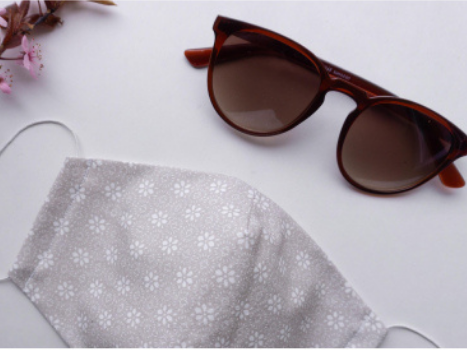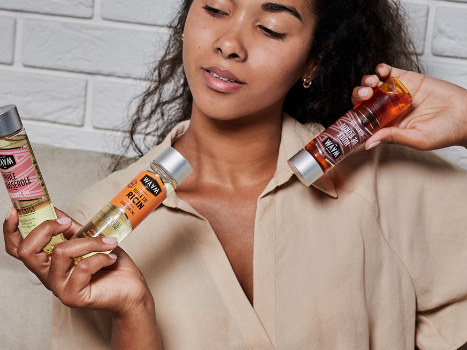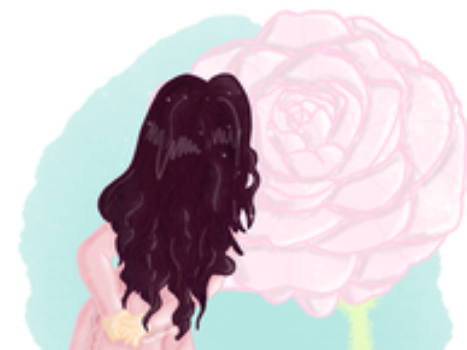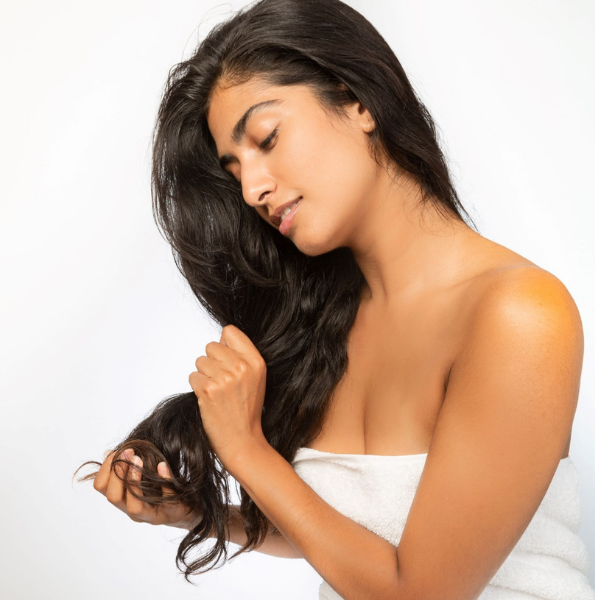
How to care for dry hair
As with the skin, there are different types of hair with specific needs. Today we're going to talk to you about dry hair, help you understand why it's dry and give you some tips on how to care for it naturally.
All our tips for caring for dry hair naturally
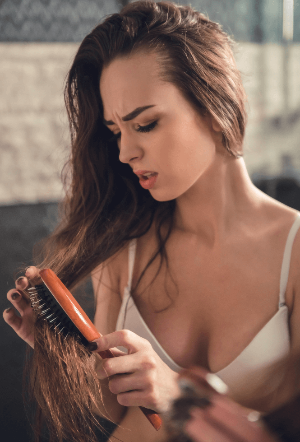
Why is my hair dry?
Some hair types are drier than others. This is particularly true of curly and frizzy hair. Sebum has difficulty spreading throughout the hair fiber, which is not shaped to facilitate the process. Sebum is secreted naturally, and its mission is to nourish, moisturize and protect hair from external aggression.
So you can understand why hair lacking sebum (or, on the contrary, producing too much sebum that is poorly distributed throughout the hair fiber) is drier than other hair.
Of course, there are other reasons why hair is drier, and the treatments we put it through can be the cause. Repeated chemical coloring, straightening, blow-drying and straightening change the nature of the hair. Hair has trouble staying moisturized.
Pollution, the water we use and the sun are also factors.
How to recognize dry hair?
If you feel your hair is dry to the touch, even after your treatments, if it's damaged and brittle, you probably have dry hair. Dry hair is generally harder to style and discipline. You'll need to adapt your routine to pamper your hair and make it softer.
What routine should you choose for dry hair?
The watchword is gentleness. To care for dry hair, you need to choose a routine and gentle care products that won't attack or dry out the hair. This routine must be moisturizing, nourishing and fortifying.
Shampooing
Dry hair doesn't like to be washed every day. The risk of washing your hair too often is to remove its natural sebum. Shampooing once a week is more than enough. Be sure to choose gentle, non-drying cleansers. We recommend sulfate-free shampoos, no poo shampoos or cleansing creams.
Conditioner
If your hair needs detangling, conditioner is a must. It will help you gently remove any tangles and coat your hair fibers at the same time. As with shampoo, choose a gentle, sulfate-free conditioner (yes, sulfates are found in many conditioners). Once applied to damp hair, detangle in portions and rinse.

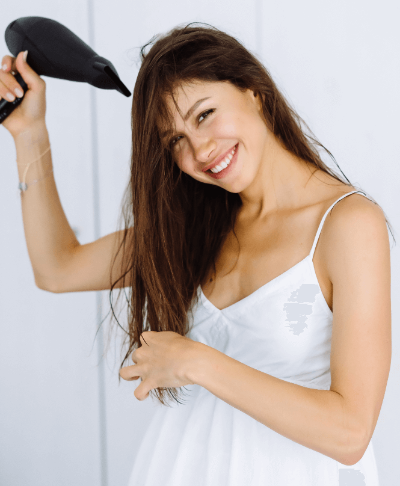
The mask
Remember when we told you that dry hair needed to be pampered? It's one of the most important steps in your hair care routine. A hair mask will deeply nourish the hair and make up for any deficiencies.
Choose specific masks for dry hair, often rich in oils or butters. Commercially available masks for dry hair contain very few noble ingredients and often contain silicones. We recommend that you read the ingredients carefully.
And if you can't find what you're looking for, make your own treatments using natural bases that you can personalize. Leave it on, especially on the lengths and ends (the scalp doesn't need a mask), under a heat source for at least 30 minutes for best results (heated helmet, hot towel...).
Drying
To dry your hair without damaging it, there's nothing like air-drying, but not everyone has time for that. You can use your hair dryer on the cool setting, as heat can dry it out.
To complete your routine, and if your hair is crying out for it, you can moisturize and nourish it on a daily basis. A leave-in moisturizer followed by a vegetable oil will help keep your hair soft and supple. For frizzy hair, you can add a butter to seal in the moisture.
Anti-dry hair tips
During your hair care routine, remember to rinse your hair with lukewarm water, or even cold water if you're feeling brave. Water that's too hot will strip hair of its natural sebum, making it drier.
To neutralize the limescale in the water, use a mixture of cider vinegar and water for your final rinse (2 tbsp. vinegar in ½ liter of water). Your hair will also be shinier.
When styling your hair, make sure you choose alcohol-free products. Alcohol is very drying, and putting it on your hair every day will only dry it out.
Protect your hair from the cold, the sun's rays and even when you're sleeping. Rubbing against conventional pillowcases makes hair drier. We advise you to sleep with a satin cap, and if you don't find that glamorous, opt for a satin pillowcase.
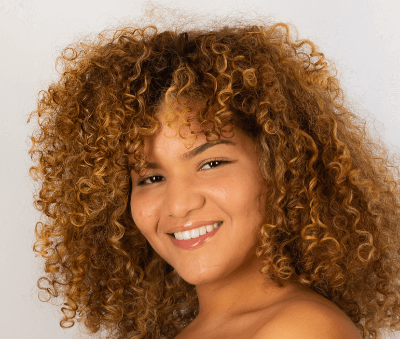
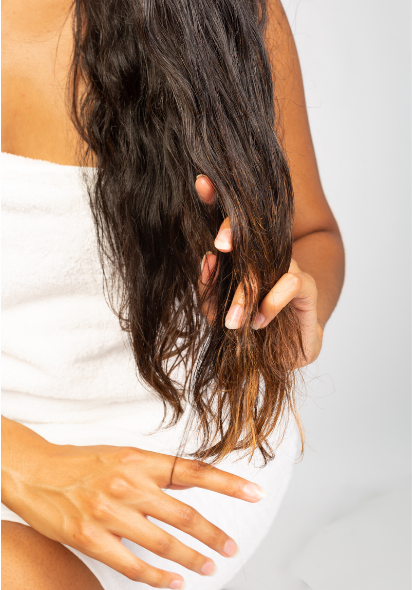
.jpg)
.jpg)





